Can You Overcharge a Car Battery? What Are the Causes?
-
Ed Malaker
- Last updated:
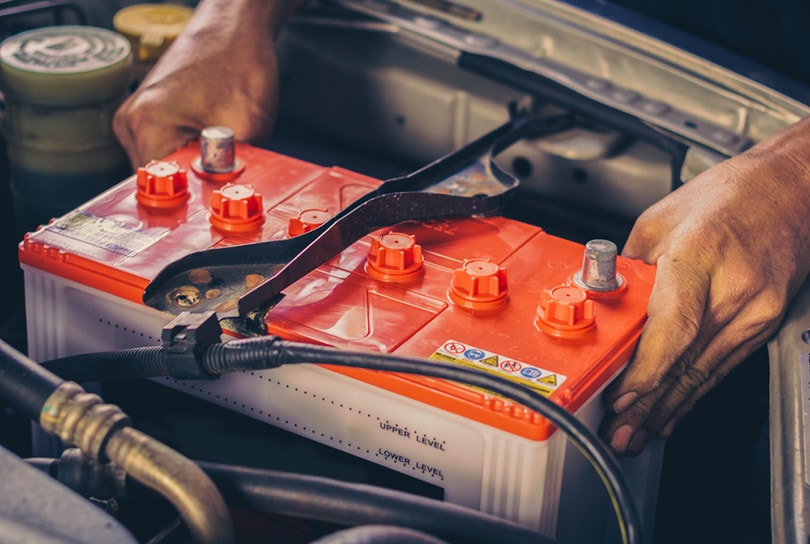
Car batteries last a long time, so most people don’t have much experience dealing with them. Some people purchase a battery charger to help in an emergency but are unsure how long to charge the battery or if it’s possible to overcharge it. Unfortunately, it is possible to overcharge a car battery, which can damage it. It’s quite rare, so keep reading as we look into how it can happen.
 Overcharging a Car Battery
Overcharging a Car Battery
Most car batteries are lead-based and are resistant to overcharging. Similarly, most battery chargers use a trickle charge, which would take a long time to cause any damage. Most people using a battery charger are trying to recover a dead battery and will remove the charger as soon as possible, so there is little risk of overcharging.
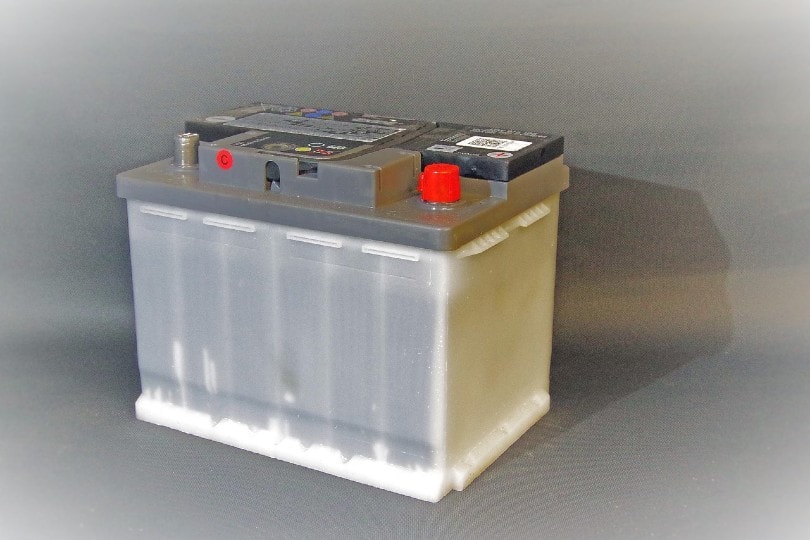
What Are the Main Causes of an Overcharged Battery?
Faulty Voltage Regulator
A faulty voltage regulator is one of the main reasons a battery can reach an overcharged state. The voltage regulator controls how much power the alternator produces. If it detects that the battery needs more power, it will turn on the alternator and turn it off again when it’s not required.
If it fails, it could cause the alternator to continue to run or fail to run at all. A continuously running alternator will overcharge the battery, while one that doesn’t run will cause the battery to lose charge frequently.
Improper Charger Settings
Most car battery chargers are easy to use, and a quick look at the owner’s manual will get you going almost immediately. Most people want to get the battery going again as soon as possible, and choosing the wrong setting will only make it take longer.
However, if you have the battery out of the car and plan on charging it slowly in a garage or similar area for an extended period, it’s important to ensure you have all the settings correct to avoid overcharging the battery. Usually, you set overnight charges to a lower trickle charge.
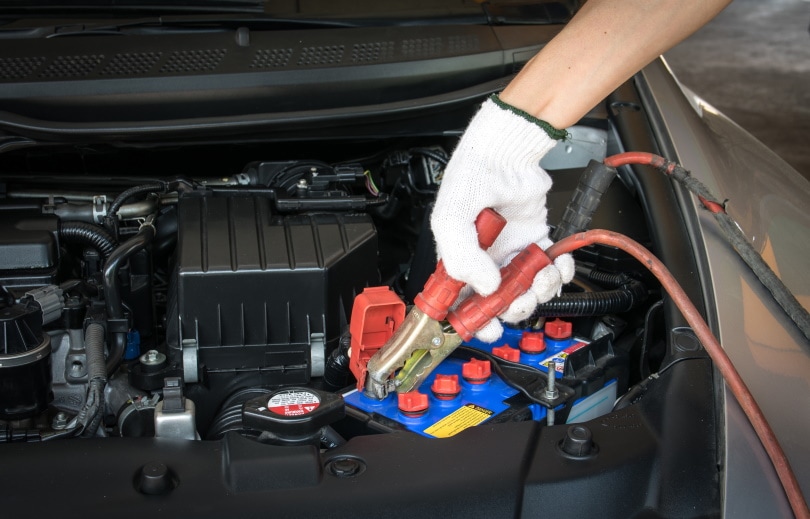
Bad Battery
A bad battery will usually stop holding a charge and frequently die, especially as the weather gets cold. However, some batteries can break down internally, leading to an overcharging situation.
Signs My Battery Is Overcharging
The Battery Is Hot
If the sides of your battery feel hot after driving for at least 30 minutes, there is a good chance that your battery is overcharging. It should feel cool to the touch at all times when operating normally.
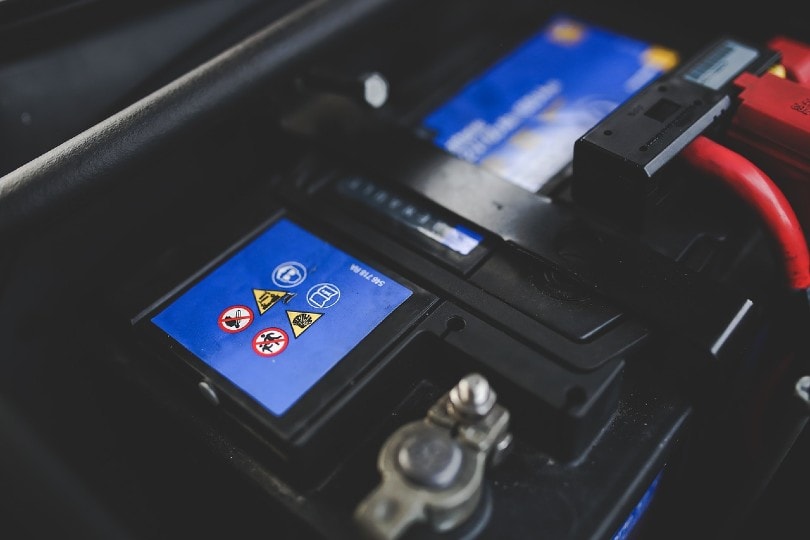
You Can Smell Acid
An overcharging battery will boil off acid, which produces a distinct fragrance. You may detect a strange smell when you are working near the battery.
Dropping Fluid Levels
Most car batteries have caps on top that you should remove to check the fluid levels and top them off with water as needed. If you find yourself topping them off frequently, it can be a sign that your battery is overcharging.
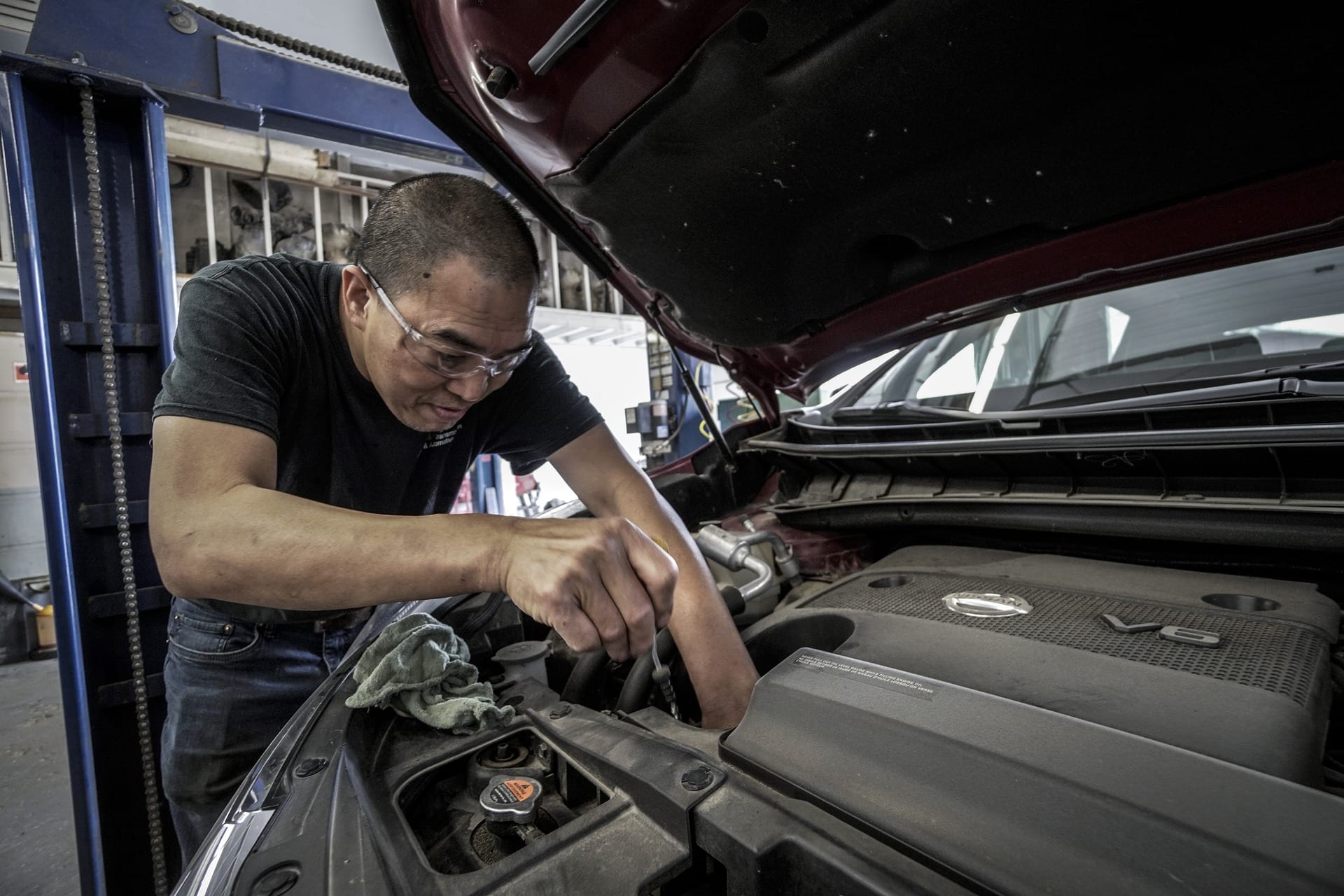
Resting and Running Voltages Are Incorrect
When your car is not running, the voltage across your terminals should be about 12.6 volts. A much lower value can mean that the battery is not charging correctly. With the car running and the engine revving, the voltage should reach about 14.2 volts.
If there is no increase or it goes beyond 14.2 volts, there is a good chance that your voltage regulator is faulty.
Curved or Swollen Sides
If you notice that the sides of your battery are curved or swollen, it’s a sure sign that it’s overcharging. Curved and swollen sides mean the lead plates inside the battery are breaking down. It also means gases are building up and creating pressure, possibly leading to an explosion of dangerous chemicals.
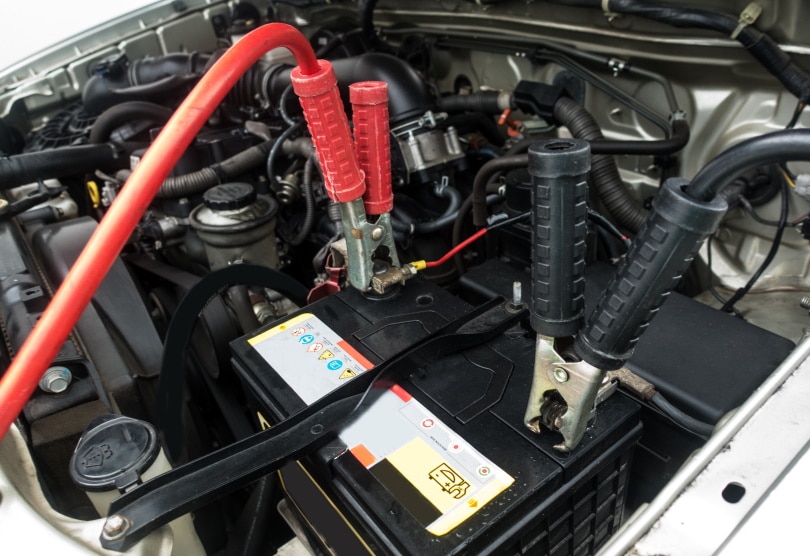
Can I Fix an Overcharged Battery?
Unfortunately, once you overcharge a battery and damage the internal lead plates, you cannot repair them without completely rebuilding the battery. The only thing to do is to take it to an auto shop and replace it with a new one. You will also need to make an appointment with your mechanic to find out why the battery overcharged so it doesn’t happen again.
Tips for Charging a Car Battery
- Always read over the owner’s manual carefully and choose the correct settings for your car battery.
- Try to charge the battery at room temperature for better results.
- Make sure to charge your batteries in a well-ventilated area.
- Low-charge settings take a long time to work but reduce the risk of an overcharge.
- Keep the battery terminals clean.
- Use a smart charger that will detect the right time to turn off the power to prevent overcharging.
 Summary
Summary
Fortunately, overcharging isn’t a big problem with most battery chargers, as long as you don’t set it up to charge in the garage or basement and then forget about it. Most overcharging problems result from a malfunctioning voltage regulator that enables your car’s alternator to overcharge the battery continuously as you drive.
We recommend checking your battery after a long drive to see if the sides feel hot, which is a sign of overcharging. If you notice any deformities or bulging, you must schedule an appointment with a mechanic immediately to have the problem looked at, and you will likely need a new battery.
Featured Image Credit: 13_Phunkod, Shutterstock
Contents
 Overcharging a Car Battery
Overcharging a Car Battery